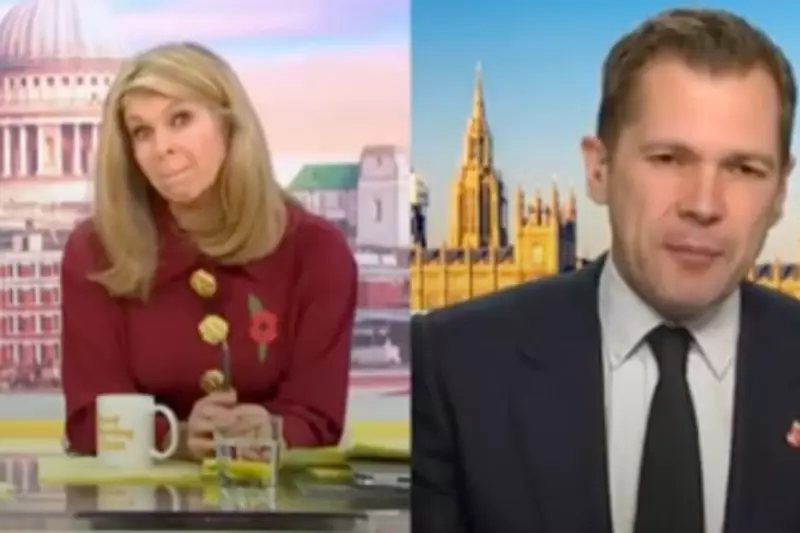
Immigration Minister Robert Jenrick has been accused of orchestrating a 'desperate political stunt' following his contentious appearance on Good Morning Britain, where he discussed NHS waiting times while sitting opposite presenter Kate Garraway, whose husband requires round-the-clock care after severe COVID complications.
A Tone-Deaf Television Moment
The interview sparked immediate outrage as Jenrick attempted to defend the government's handling of the NHS crisis while facing Kate Garraway, who has become a symbol of the health service's struggles through her documentary 'Caring for Derek' about her husband's devastating battle with coronavirus.
Viewers and critics alike condemned the minister's decision to use the platform, questioning the political judgement behind sending an immigration minister to discuss healthcare matters to a presenter with such personal experience of system failures.
Garraway's Heartbreaking Reality
Kate Garraway's situation provides a stark contrast to political rhetoric. Her husband Derek Draper, a former political lobbyist, remains one of the UK's longest-suffering COVID patients, requiring 24-hour care and facing enormous challenges within the healthcare system that Garraway has documented with raw honesty.
During the interview, Garraway maintained professional composure while clearly representing the very real human cost of NHS pressures that millions of families are experiencing across the country.
Political Backlash and Public Reaction
The segment has been widely criticised as a misjudged attempt to score political points, with many questioning why an immigration minister was chosen to discuss healthcare rather than Health Secretary Steve Barclay or another relevant official.
Social media erupted with criticism, with many viewers describing the interview as 'painful to watch' and 'completely tone-deaf' given Garraway's personal circumstances and the government's ongoing challenges with NHS waiting times and staff shortages.
Broader Implications for Government Messaging
This incident raises serious questions about the government's media strategy and its handling of sensitive health topics. The decision to deploy Jenrick rather than a health specialist suggests either a significant communications failure or a deliberate attempt to control the narrative on NHS performance.
As the government faces ongoing criticism over healthcare funding and immigration policy, this interview mishap highlights the growing challenge of maintaining credible messaging on multiple policy fronts simultaneously.
The aftermath of this television appearance continues to generate discussion about political accountability and the appropriate use of media platforms when discussing issues that directly affect millions of British families.





